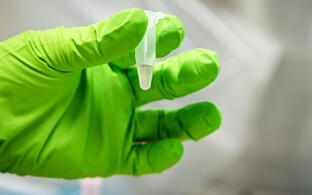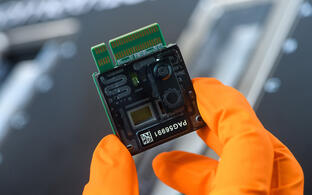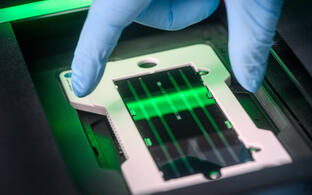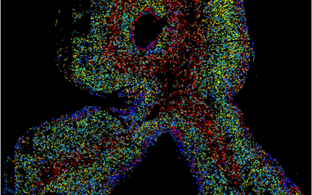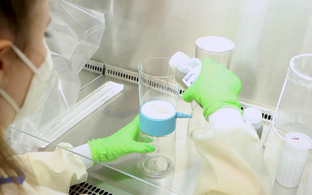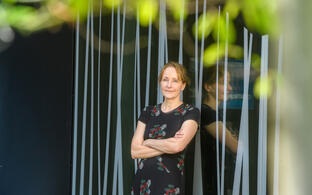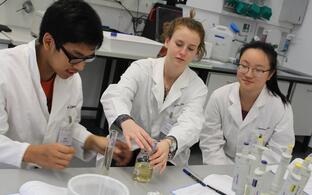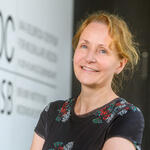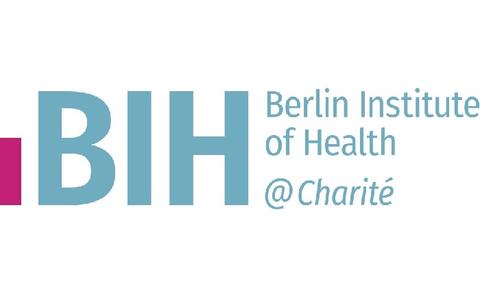
Genomics Technology Platform
Janine Altmüller
Profil
We operate Illumina, Oxford Nanopore and PacBio platforms and offer standard as well as customized library preparation workflows to our users.
Single-cell multi-omics and spatial biology technologies are a major focus of our work. Our integrated Flow Cytometry unit enables us to select and isolate cells on site. A broad range of state-of-the-art single-cell applications are available for downstream analyses.
We constantly implement novel techniques in collaborative research projects and are closely working with clinical researchers to translate these technologies into systems medicine. By providing a multi-omics view on the pathophysiology of patient or model system samples, we support clinical scientists to delineate the underlying mechanisms of diseases like cancer, cardiovascular events, or neurological disorders.
The facility comprises four teams: Next Generation Sequencing, Single-Cell Technologies, Flow Cytometry and Data Management.
Next Generation Sequencing Team (Dr. Tatiana Borodina)
We operate an impressive line of sequencing platforms (Illumina, PacBio, Oxford Nanopore), pipetting robots and analytical equipment at our high-throughput sequencing lab at the Rahel-Hirsch-Center. The team has extensive experience implementing novel protocols, automating library preparation, and methodological development.
Available services and technologies include:
- Consultations on NGS-related questions;
- Support in the experimental design of NGS projects;
- QC for DNA and RNA samples and sequencing libraries;
- Library preparation from bulk material for diverse -Seq applications:
- RNA sequencing (e.g. mRNA-, totalRNA-, 3’mRNA-, miRNA-Seq),
- DNA sequencing (e.g. whole genome, whole exome, amplicon, cfDNA),
- Epigenome (ChIP-Seq, Methyl-Seq, direct RNA and DNA sequencing);
- Short-read sequencing on Illumina instruments: iSeq, MiSeq, MiniSeq, NextSeq 2000, NovaSeq 6000, NovaSeq X plus;
- Long-read sequencing on Pacific Biosciences Revio;
- Long-read sequencing on Oxford Nanopore MinION and PromethION platforms
Single-Cell Technologies Team (Dr. Thomas Conrad)
The Single-cell technologies team provides access to an exceptionally wide range of cutting-edge single-cell and spatial multiomics approaches in our lab at the Berlin Institute of Medical Systems Biology. . To facilitate easy access for a broad user community, we provide close support from experimental design to sample preparation and data processing. In addition to regular services, we offer individual user training to enable independent access to our advanced instruments. Single-cell technologies are rapidly evolving; we therefore continuously implement novel approaches in the context of collaborative research projects.
Available services and technologies include:
- Counseling on study design
- Counseling on sample preparation
- Droplet-based approaches (10X Genomics; Dolomite)
- Plate-based assays (Smart-Seq2/3; G&T-Seq; scBS+T-Seq)
- Spatial transcriptomics (10X Genomics Visium + Xenium; Nanostring GeoMx + CosMx)
Flow Cytometry Team (Caroline Braeuning)
Cell sorting and flow cytometric analysis is often a starting point for Genomics and Transcriptomics assays like initial quality control of single-cell preparations or selection of specific cell populations for droplet- or plate-based single cell transcriptomic assays. The FACS team closely collaborates with the Single Cell Technologies team and can therefore provide support with a special focus on Genomics users and their needs. Additionally, all other flow cytometric users are supported and welcome.
We are equipped with state-of-the-art conventional and spectral instruments: four cell sorters (one BD FACS AriaIII, two BD FACS AriaFusion, one BD FACSDiscover S8) and one analyzer (BD Fortessa X-20 with HTS) in our lab at the Berlin Institute of Medical Systems Biology. .
All appointments for cell sorting are assisted at an individual level to enable successful experiments for users with varying knowledge levels of flow cytometry. The sorters are available during service hours; the analyzer is flexibly bookable after training and sufficient experience.
Please contact the team for further information about consultation, training, instrument configuration, prices and booking at FacsBimsb@mdc-berlin.de .
Data Management Team (Dr. Marten Jäger)
The process of collection and processing of genomic data is still lacking sufficient level of standardisation. To close that gap, our group, located at the Rahel-Hirsch-Center, strives to implement automated software solutions for genomic data processing and analysis enabling effective introduction of quality control measures safeguarding reproducibility.
Regarding data management issues please contact helpdesk-genomics@charite.de.
Please refrain from directly contacting individual members of the data management group to avoid lost inquiries.
Steering Committee
BIH
Christian Conrad
Stefanie Großwendt
Ute Scholl
MDC
Yo Lee
Ilaria Piazza
Nikolaus Rajewsky
Guests
Nils Blüthgen (Charité)
Anton Henssen (MDC/Charité)
Team
Bastian Salewsky
bastian.salewsky@bih-charite.de
+49 30 450 643 364
RHC lab
PacBio and Oxford Nanopore sequencing | NGS library preparation | Nucleic acids isolation
Bella Hamid
bella.hamid@mdc-berlin.de
MDC lab
Flow Cytometry
Carola Dietrich
carola.dietrich@mdc-berlin.de
+49 30 9406 1342
MDC lab
Single-cell genomics
Caroline Braeuning
caroline.braeuning@mdc-berlin.de
+49 30 9406-3043
MDC lab
Team leader Flow Cytometry
Catrin Janetzki
catrin.janetzki@bih-charite.de
+49 30 450 643 366
RHC lab
NGS library preparation | Illumina sequencing
Claudia Quedenau
quedenau@mdc-berlin.de
+49 30 450 643 364
RHC lab
Safety and first aid | PacBio and Oxford Nanopore sequencing | NGS library preparation
Cornelia Schlee
cornelia.schlee@bih-charite.de
+49 30 450 643 366
RHC lab
NGS library preparation | Illumina sequencing
Cornelius Fischer
cornelius.fischer@bih-charite.de
+49 30 450 569 048
RHC
Data management
Elisabeth Kirst
elisabeth.kirst@charite.de
+49 30 450 643 365
RHC lab
NGS library preparation | Illumina sequencing
Helene Pflugk
helene.pflugk@mdc-berlin.de
+49 30 9406 1357
MDC lab
Flow cytometry support
Isabell Becker
isabell.becker@mdc-berlin.de
+49 30 450 676 272
RHC lab
NGS library preparation | Illumina sequencing
Izabela Plumbom
izabela.plumbom@mdc-berlin.de
+49 30 9406 1320
MDC lab
Single-cell genomics | Spatial transcriptomics
Jakob Hilgenfeld
jakobhannes.hilgenfeld@mdc-berlin.de
+49 30 9406 3266
MDC lab
student assistent
Janine Altmüller
janine.altmueller@mdc-berlin.de
janine.altmueller@bih-charite.de
+49 30 9406 1434
+49 30 450 643 363
Head of BIH/MDC Genomics Technology Platform
Jeannine Wilde
jeannine.wilde@mdc-berlin.de
+49 30 450 643 368
RHC lab
Illumina sequencing coordination | NGS library preparation
Kirsten Richter
kirsten.richter@mdc-berlin.de
Lab administration
Lorena Derezanin
lorena.derezanin@bih-charite.de
+49 30 450 669 048
RHC
Data management
Madlen Sohn
madlen.sohn@mdc-berlin.de
+49 30 450 643 365
RHC lab
NGS library preparation | Illumina sequencing
Marko Vukovic
marko.vukovic@mdc-berlin.de
MDC lab
Single-cell genomics
Marten Jäger
marten.jaeger@bih-charite.de
+49 30 450 569 048
RHC
Team leader Data management
Michaela Seeger-Zografakis
mseeger@mdc-berlin.de
+49 30 9406 1324
MDC lab
Flow Cytometry support
Namuun Battur
namuun.battur@bih-charite.de
+49 30 450 669 048
RHC lab
Data Management
Olivia Hochleitner
olivia.hochleitner@mdc-berlin.de
MDC lab
single cell genomics / spatial transcriptomics
Sarah Vitcetz
sarah.vitcetz@mdc-berlin.de
+49 30 9406 3041
MDC lab
Lab management / single cell genomics / spatial transcriptomics
Tatiana Borodina
tatiana.borodina@mdc-berlin.de
+49 30 9406 1341
+49 30 450 643 367
MDC / RHC
Team leader Next Generation Sequencing
Thomas Conrad
thomas.conrad@mdc-berlin.de
+49 30 9406 1481
MDC
Team leader Single-cell Technologies
Ulrike Krüger
ulrike.krueger@bih-charite.de
+49 30 450 643 507
RHC lab
Project coordination and Lab management | NGS library preparation | Illumina sequencing
Ute Ungethüm
ute.ungethuem@bih-charite.de
+49 30 450 676 272
RHC lab
Coordination of large-scale projects (Charité lab) | Automation of nucleid acid extraction and QC assays
Wassim Salam
wassim.salam@bih-charite.de
+49 30 450 669 048
RHC lab
Data management
Publications
News
Next Generation Sequencing
For consulting and assistance in planning of a sequencing experiment please contact us at seqteam@mdc-berlin.de or seqteam@bih-charite.de.
NGS Services Prices
Actual pricelist valid for MDC and Charité users is available upon request.
Large-scale projects require individual cost calculation - please contact seqteam@mdc-berlin.de or seqteam@bih-charite.de.
Ordering
Services are currently ordered per email to seqteam@mdc-berlin.de or to seqteam@bih-charite.de or to the members of the NGS team you are already in contact with.
Each service project has to be registered by filling the Project Registration Form and a relevant Sample Transfer Form – forms are sent out per email.
The specific number assigned by the NGS team to each project is used as a reference for further communication.
Turnaround time
Generally, the projects are processed in the order of samples (libraries) receipt.
Scheduling of sequencing libraries preparation for any platform depends on the current workload and equipment availability.
Illumina sequencing schedule depends on how fast the samples requiring the same sequencing mode are collected to fill up a flowcell. If your ready sequencing libraries occupy the whole flowcell, usually they can be sequenced within 1-2 weeks after the delivery.
Loading of ready libraries on PacBio and Oxford Nanopore PromethION is also usually possible within 1-2 weeks, depending on the sequencing queue.
Single-Cell Technologies
Eventually, single-cell multi-omics approaches provide a unique opportunity to discover exclusive characteristics of a diseased cell state.
Available assays include the detection of gene expression profiles, open chromatin regions, DNA sequence, cell surface epitopes, or T- and B- cell receptor sequences, and combinations thereof for thousands of single-cells in parallel.
In addition, spatial transcriptomic approaches allow us to assay individual cells in their spatial context, and reconstruct tissue architecture and its changes in response to environmental cues or in disease states.
Our integrated Flow Cytometry unit enables us to perform initial quality control of single-cell preparations, and to select and isolate cell populations directly on site for droplet- or plate-based assays.
As all single-cell projects require individual organization and individual project planning and sample handling, please contact Dr. Thomas Conrad – Thomas.Conrad@mdc-berlin.de for further consultation.

